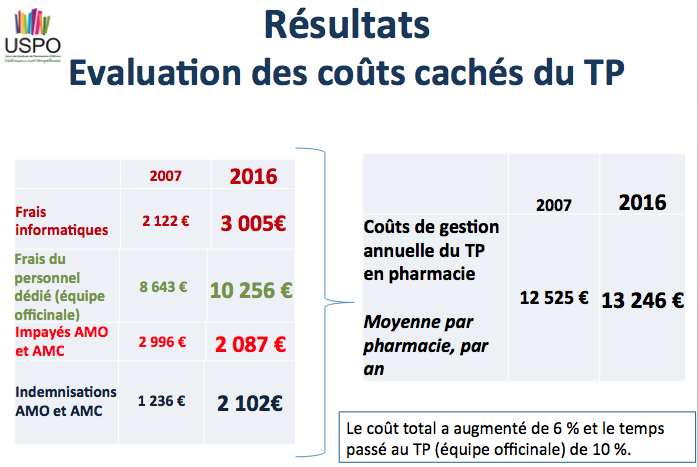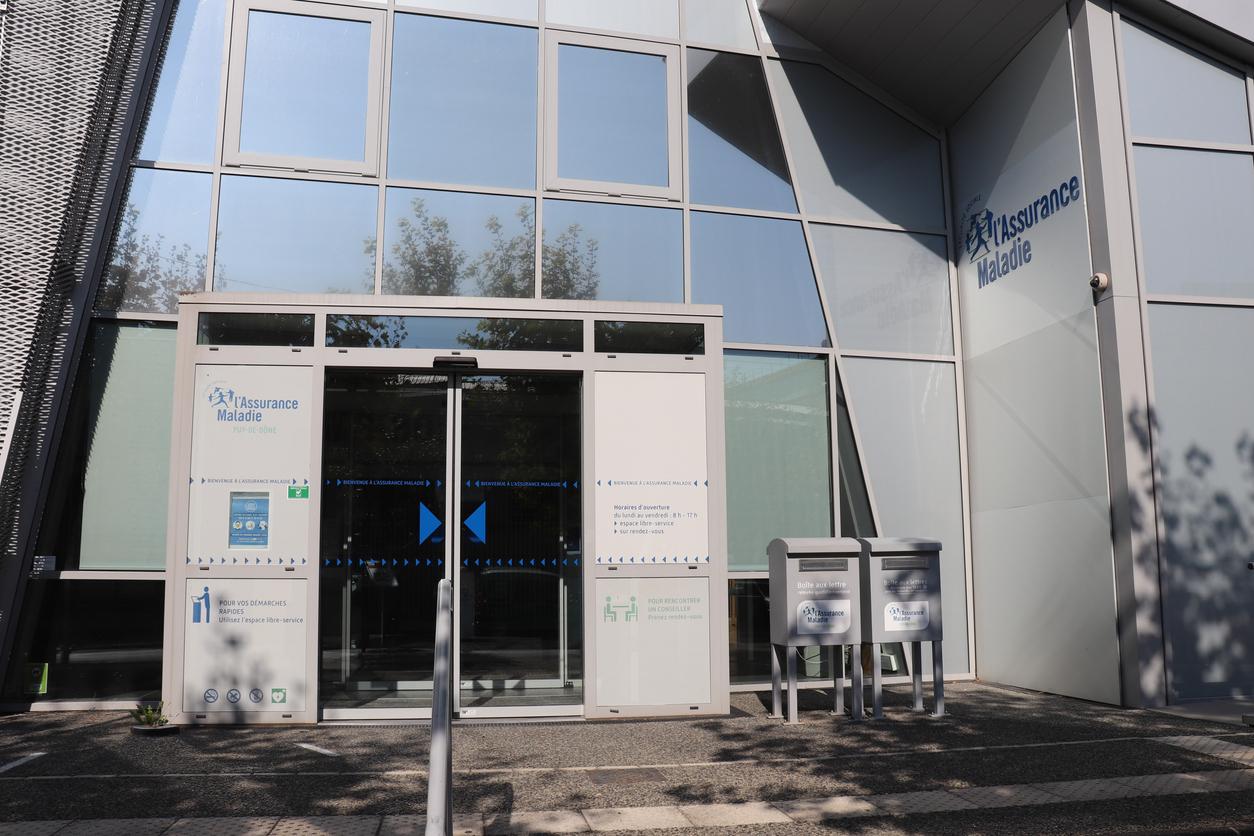Managing third-party payment takes more and more time for pharmacists. This is what reveals an investigation by the pharmacists’ union, the USPO, on the hidden costs of management.

Managing third-party payment in pharmacies is “a tedious job that has become even more time-consuming over the past 10 years”. This is what reveals a survey conducted by the USPO union (1) in December 2016. It also reveals the hidden costs of managing third-party payment with Health Insurance and complementary health insurance.
Among the main flaws in the system, the investigators note the average time spent by the pharmacy team more than half-time (26.6 weeks or 932 hours). It has also increased by 10% in 10 years. This trend obviously has consequences on the reception in pharmacies, since it is even accused of causing “a waste of time in front of the patients by the complexity and the increasing changes of the rights in particular of complementary health and since the arrival of the’assistance with the payment of complementary health insurance (ACS) “.
+ 6% of total cost in ten years
But the system is also considered expensive by these professionals, with an average annual management cost of between 13,246 euros (preparer) and 28,601 euros (pharmacists). In addition, an additional cost has been added to this already busy slate aimed at “promoting bank reconciliations (concentrators, software, outsourcing companies)”. To explain this increase in the total cost of 6% in ten years, the USPO recalls that the management of third-party payment still remains largely internal to the pharmacy. She also points to the increase in the time spent managing complaints.
For the profession carrying out the most teletransmissions and having, according to the USPO, “the most constraints” (updating of Vitale cards, reading of less readable and more complex rights supports, including in 2017), “there is no has not had any overall administrative simplification for ten years ”. “No health profession can support such a level of additional expense and financial risk,” said the union.

The call of pharmacists
In a press release, the USPO therefore calls on Health Insurance and complementary health insurance to choose efficiency: “the third-party payment must now be simplified with the health professionals who practice it. This simplification must be given priority, in particular by a single agreement between pharmacists and complementary health insurance, limiting the heterogeneity of the support for rights and practices, ”she concludes.
(1) The Union des Syndicats de Pharmaciens d’Officine obtained 503 responses to qualitative assessment questions and an assessment of the hidden costs of third-party payment in pharmacies (December 2016). These results were compared with those of a USPO survey conducted in 2007 with an identical methodology.
.















